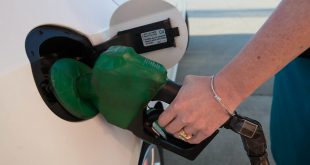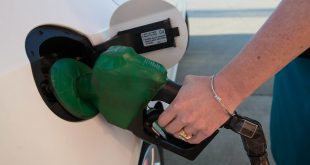I would have to say that this effort makes a lot of sense to me as the need to have diversity in fuels so that we can get away from our dependence on gasoline only at the pump is paramount. As it is the consumer is given almost no choice at the pump or in their immediate city/state when it comes to fuels choices. So we all watch as the prices rise, the debate rages on, and the big oil companies delay any efforts to change. Maybe an initiative like this to get alternative fuels choices at the pumps is just what is needed.
Washington, D.C., September 20, 2011 – Worldwide leaders in the effort to commercialize next-generation, advanced transportation fuels announced today a new campaign to bring consumer choice to gas stations across America. The campaign – called FuelChoiceNow – will ask lawmakers to take every reasonable step to open U.S. transportation fuel markets to alternative fuels.
“The only way to free the American consumer from the vicious cycle of world oil price spikes is to give them a choice at the pump,” said Matt Horton, CEO of Propel, a national leader in the effort to put alternative fuel pumps in the ground, “there are alternatives, but we need to unleash them.”
Of particular concern to FuelChoiceNow supporters, comprised of advanced fuel companies and cleantech investors, is the lagging U.S. position in the global race to produce clean energy.
“If we do not take every reasonable step to enact forward-thinking, enduring policies that open the marketplace for these fuels, China, India or Brazil surely will,” said John McCarthy Jr., President and CEO of Qteros. “We’re already witnessing these and other countries beat us to the punch by enacting consistent energy policies, investing in infrastructure, and recognizing the value in the creation of renewable energy economies.”
The coalition says that advanced fuel companies are developing new, affordable and commercial-ready alternatives to oil, but are inhibited by unnecessary vehicle and refueling constraints that choke demand and inhibit change in the marketplace. The coalition points to ethanol and natural gas as evidence of a marketplace that does not reward price-competitiveness and innovation. Both domestically-produced fuels are cheaper than gasoline, but have limited market access.
“Americans are paying $4 per gallon for gasoline while we export cheaper fuels to other countries,” said Brooke Coleman, who will coordinate the campaign, while noting that cars and trucks could be made to run on any blend of gasoline, ethanol or natural gas-derived methanol for less than $100 per vehicle.
FuelChoiceNow sees the effort as encompassing a wide range of fuels, including biofuels, natural gas, electricity and others, but supports the immediate deployment of technologies that are available and price-competitive now. “Over-reliance on one type of an increasingly scarce and expensive fuel is wreaking havoc on American consumers and our economy as a whole,” added Coleman, “it is time to do everything we can to bring consumer choice to the pump, starting with domestic fuels available now.”
The coalition plans to release a set of priorities in the coming weeks.
 Alternative Energy HQ solar power for homes, wind energy, and bio fuel issues
Alternative Energy HQ solar power for homes, wind energy, and bio fuel issues






